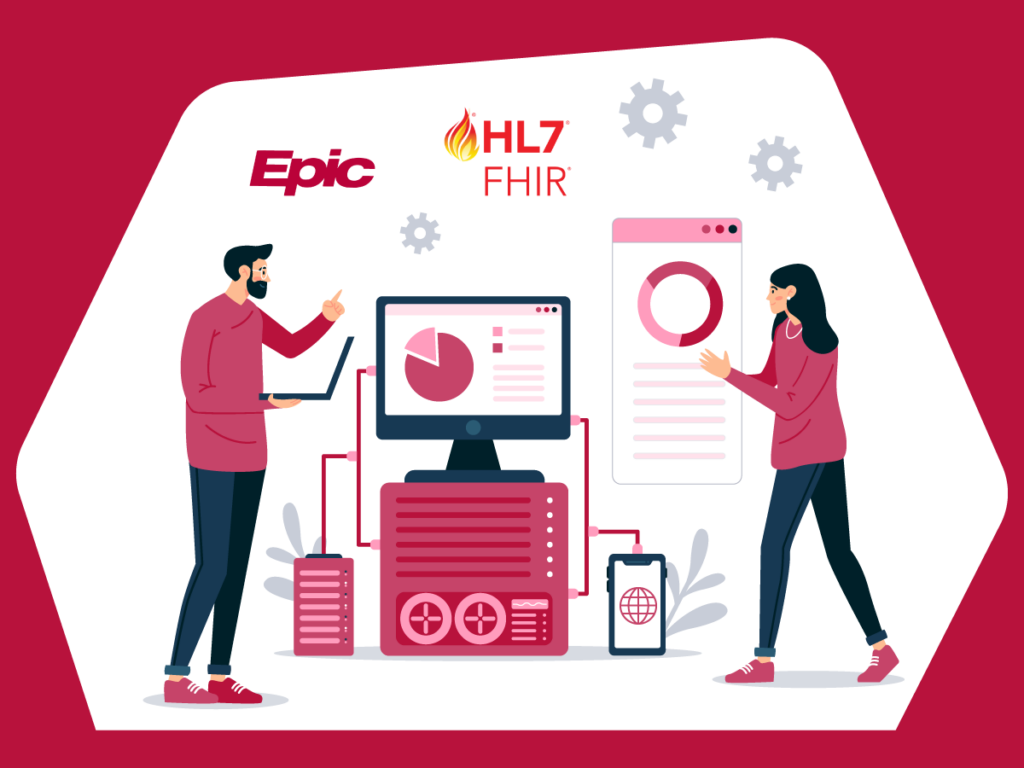
How Epic FHIR Integration is Transforming the Sharing of Protected Health Information (“PHI”)
The healthcare industry is in the midst of a data revolution, where seamless data exchange is paramount for providing better patient care, improving outcomes, and enhancing operational efficiency. One of the most significant advancements in this field has been the introduction of FHIR (Fast Healthcare Interoperability Resources) integration into Epic systems. Epic, one of the most widely used electronic health record (EHR) systems in the world, has been integrating FHIR standards into its platform to facilitate more efficient and interoperable healthcare data sharing. This transformation is crucial for improving how data flows across healthcare systems, making it easier to share patient information, reduce redundancies, and enhance decision-making.
The Role of FHIR in Modernizing PHI Sharing
FHIR, developed by HL7, is a set of standards designed to improve the interoperability of healthcare systems. It provides a framework for exchanging healthcare information in a way that is both scalable and adaptable. FHIR’s key strength lies in its ability to integrate disparate systems by offering a common language and structure for data. Epic’s integration of FHIR facilitates the movement of clinical, administrative, and financial data between different healthcare providers, enhancing collaboration and improving patient care. By utilizing FHIR, healthcare organizations can ensure that patient data is updated and accessible in real time, even across different systems, helping to break down silos that have traditionally hampered information sharing.
Epic’s adoption of FHIR has enabled a more open, flexible, and standardized approach to data exchange. With the ability to pull patient data from various sources into Epic’s EHR platform, healthcare providers can make more informed decisions, reduce errors, and streamline workflows. Additionally, FHIR supports the creation of patient-facing applications, allowing patients to access and manage their health data more easily. This shift is moving healthcare toward a more patient-centered model, where individuals have greater control over their health information and can make more informed decisions about their care.
Benefits of Epic FHIR Integration for Healthcare Providers
For healthcare providers, the integration of FHIR into Epic offers numerous benefits. One of the most significant advantages is the reduction of data entry errors. By automating the flow of information between systems, the risk of manual errors is minimized. This is especially important in complex clinical settings where accurate patient information is critical for decision-making. Furthermore, Epic FHIR integration helps streamline administrative processes, such as billing and coding, reducing the time spent on non-clinical tasks and allowing healthcare professionals to focus more on patient care.
Another benefit is enhanced collaboration between healthcare organizations. With FHIR, data can flow seamlessly between different organizations, even if they use different EHR systems. This interoperability is critical for coordinated care, especially for patients with complex medical conditions who may see multiple specialists across various facilities. With real-time access to up-to-date patient records, healthcare providers can work together more effectively, ensuring that patients receive the best possible care regardless of where they receive treatment.
The Challenges and Future of Epic FHIR Integration
Despite the numerous advantages, integrating FHIR into Epic systems is not without its challenges. One of the primary obstacles is the complexity of integrating legacy systems with new technologies. Many healthcare organizations still rely on older systems that were not designed to handle modern interoperability standards. Transitioning to a more interoperable model requires significant investments in technology, time, and training.
Moreover, ensuring the security and privacy of patient data is a top priority when implementing FHIR standards. Healthcare organizations must adhere to strict regulations, such as HIPAA, to protect sensitive information. FHIR’s standardized approach to data exchange helps mitigate some security risks by defining clear protocols for data access and sharing. However, organizations must still take extra precautions to ensure that data is exchanged securely across all platforms.
How Itirra is Driving Innovation in Epic FHIR Integration
As Epic continues to enhance its FHIR capabilities, innovative healthcare tech companies like Itirra are leading the way in designing, developing, and deploying custom Epic FHIR integration solutions. Based in Washington, Itirra has over a decade of experience in the healthcare technology space, specializing in building bespoke solutions that integrate Epic systems with other healthcare platforms. By using HL7 and FHIR standards, Itirra ensures that their clients can achieve optimal interoperability between their EHR systems and external applications.
Itirra’s deep expertise in both healthcare workflows and technical integration has positioned the company as a leader in Epic FHIR implementation. They work closely with healthcare organizations to tailor solutions that meet the unique needs of each provider. Whether it’s developing custom interfaces, integrating with third-party applications, or optimizing data exchange processes, Itirra’s solutions help healthcare organizations unlock the full potential of Epic FHIR integration, driving efficiency and improving patient care across the board.
Conclusion: The Future of Healthcare Interoperability
The integration of FHIR standards into Epic systems marks a critical step forward in the journey toward seamless healthcare interoperability. By embracing this powerful framework, healthcare providers can share data more efficiently, reduce errors, and improve patient outcomes. While challenges remain, especially in terms of security and integration with legacy systems, the benefits far outweigh the hurdles. As companies like Itirra continue to develop cutting-edge Epic FHIR integration solutions, the healthcare industry is poised to experience a future where data flows effortlessly between systems, enabling better care, improved decision-making, and a more connected healthcare ecosystem.
In conclusion, Epic FHIR integration is revolutionizing how healthcare data is exchanged, offering enhanced interoperability, better patient care, and more streamlined operations. With the expertise of companies like Itirra, healthcare organizations can navigate this transformation with confidence, ensuring that they stay ahead of the curve in an increasingly data-driven world. Through innovation and collaboration, the future of healthcare looks brighter, more connected, and more patient-centric than ever before.


